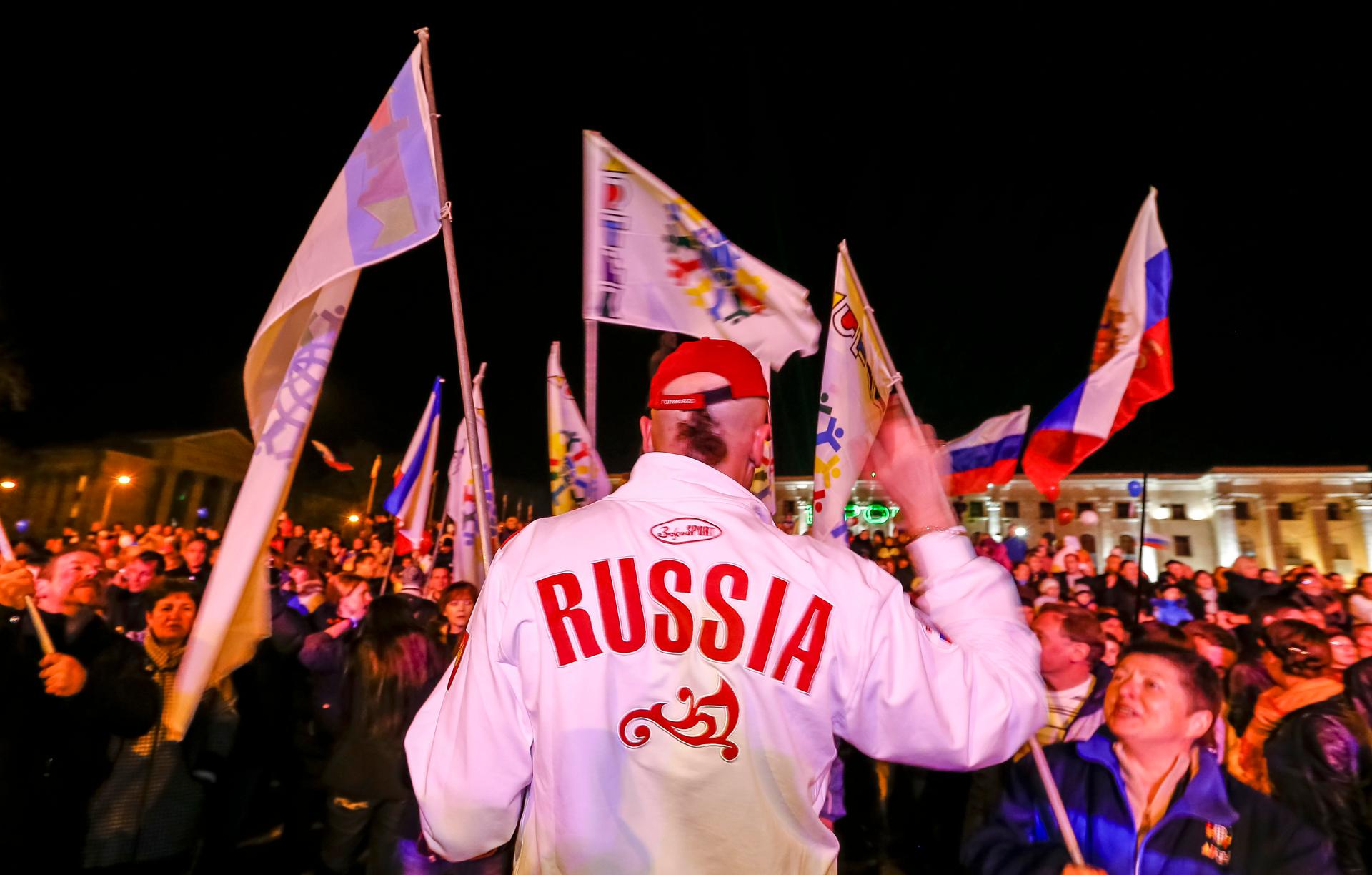Russia’s changing everything in Crimea, and that may include time itself
People attend celebrations on the main square of the Crimean city of Simferopol March 21, 2014.
Imagine if you lived in Vermont.
And all of a sudden, your state was taken over by Canada — absorbed into Quebec, in fact.
There'd be all sorts of changes you'd have to get used to: currency, language, learning a new anthem, the queen. Setting aside the sheer legality of Russia annexing Crimea, those are some of the practical considerations now facing Crimeans.
The BBC's Mark Lowen is in the Crimean capital of Simferopol and says Russian troops are firmly in control of the region now. Ukraine's authority in the area has been crushed. Monday morning, Russian forces stormed a military base in the eastern part of the region.
"The Russian troops stormed it with attack helicopters, armored personnel vehicles, automatic rifles and stun grenades," he says. "And that means that every military base in Crimea is now in the hands of the Russians."
The president of Ukraine has ordered all troops to withdraw to mainland Ukraine. Lowen says the game is essentially up for Kiev. It no longer has any military control in the area, which happened in the space of a month.
On the ground, most people in the capital city are celebrating the military victories and the switch to Russian control. But not all. Lowen says moderate Russians, ethnic Ukrainians and Tartars are all uneasy.
"This absolutely terrifies them," he says. "The efficiency of the Russian takeover. And that Ukraine has not been able to fight back."
Lowen says the changes more than new flagpoles. The area is expected to switch to Moscow time on March 30. Clocks will be advanced two hours the same day the rest of Ukraine advances clocks one hour for the start of daylight saving time. Right now, Crimea is two hours behind Moscow, because Moscow does not observe daylight saving time.
There are all sorts of bureaucratic moves being made, too, including with visas and passports. Yet basic needs must be met, like trash collection and the provision of electricity and water.
"There was a power outage the last night," Lowen says. "But it appears to be a one-off."
It's important to note the Crimean peninsula has no geographic link to Russia. The government wants to build a bridge to mainland Russian, but that will take time. So right now, the peninsula still depends on Ukraine. Lowen says it imports nearly 80 percent of it's electricity and water from its former country.
"The big question for the Ukrainian government going forward is, 'Do they try to pressure Crimea by cutting off services, or by withdrawing the trains," he adds.
Lowen says Ukraine will try to cling to some sort of presence in the area. Even if it’s an hour, or in the winter months, two hours behind.
